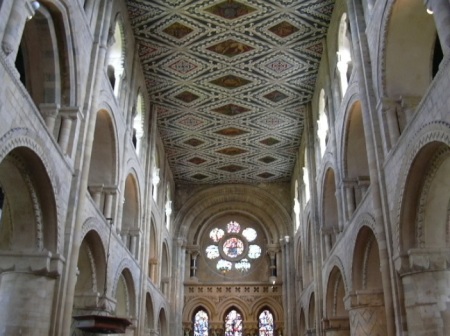‘A source of deep anguish’: Catholic Church leaders object to new lockdown in England

British Catholic Church leaders have taken issue with the newly announced second national lockdown for England, which is aimed at curbing the spread of the coronavirus.
British Prime Minister Boris Johnson announced on Saturday that there would be a second national lockdown beginning on Thursday, Nov. 5 and lasting until Dec. 2.
The lockdown order will require people to stay at home with the exception of necessary trips like work that cannot be done online, medical appointments, or grocery shopping.
Businesses labeled nonessential and entertainment venues are to be closed, with restaurants only being allowed to provide take-out and delivery services.
In response, the Catholic Church Bishops’ Conference of England and Wales released a statement on Saturday, expressing concern about the negative impact on faith communities.
Signed by Conference President Cardinal Vincent Nichols and Vice President Archbishop Malcolm McMahon, the statement argued that the lockdown will “bring hardship, distress and suffering to many.”
“We must hope and pray that this is an effective strategy against a growing pandemic which has tragically taken so many lives already and threatens so many more,” they said.
The Catholic leaders went on to say that it was “a source of deep anguish now that the Government is requiring, once again, the cessation of public communal worship.”
“Whilst we understand the many difficult decisions facing the Government, we have not yet seen any evidence whatsoever that would make the banning of communal worship, with all its human costs, a productive part of combatting the virus,” they added.
“We ask the Government to produce this evidence that justifies the cessation of acts of public worship.”
Qari Muhammad, chair of the Mosques and Imams National Advisory Board, also took issue with the new lockdown, telling the Guardian that the new lockdown interfered with “communal prayer.”
“The fundamental difference between mosques and some other places of worship is that mosques are first and foremost used for communal prayer,” Muhammad explained.
“Much of [our charity] work is sustained by communal prayer. We believe the continued running of mosques with all the necessary precautions is vital for the wellbeing of all communities.”
In March, as part of the effort to stop the spread of COVID-19, houses of worship in the United Kingdom were closed. By June, they were opened, but only for private individual prayer.
On July 4, the government allowed for in-person worship to resume, provided that congregations followed official social distancing guidelines, such as spacing attendees two meters apart.
As part of the eased restrictions begun in July, there was to be a 30-person limit applied to weddings and other "stand-alone" services like baptisms and confirmation.
The U.K. has over 1 million confirmed COVID-19 cases and 46,807 deaths as of Monday.
In August, RealClearScience published a report which found that social distancing measures for Catholic churches in the United States were effective in reducing infections.
"With approximately 17,000 parishes in America typically holding three or more weekend masses — and a greater number of daily masses — for the last 14 or more weeks — over one million public masses have been celebrated following guidelines to prevent the spread of the virus: in sum, follow the three W’s — watch your distance, wear your mask, and wash your hands,” explained the report.
“The Good News: for Catholic churches following these guidelines, no outbreaks of COVID-19 have been linked to church attendance, even though we have examples … of asymptomatic, unknowingly infected individuals attending mass and other parish functions.”





















